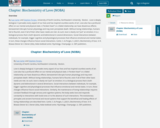
By Sue Carter and Stephen Porges, University of North Carolina, Northeastern University - Boston. Love is deeply biological. It pervades every aspect of our lives and has inspired countless works of art. Love also has a profound effect on our mental and physical state. A “broken heart” or a failed relationship can have disastrous effects; bereavement disrupts human physiology and may even precipitate death. Without loving relationships, humans fail to flourish, even if all of their other basic needs are met. As such, love is clearly not “just” an emotion; it is a biological process that is both dynamic and bidirectional in several dimensions. Social interactions between individuals, for example, trigger cognitive and physiological processes that influence emotional and mental states. In turn, these changes influence future social interactions. Carter, S. & Porges, S. (2021). Biochemistry of love. In R. Biswas-Diener & E. Diener (Eds), Noba textbook series: Psychology. Champaign, IL: DEF publishers.
- Subject:
- Psychology
- Material Type:
- Reading
- Author:
- Maura Krestar
- Date Added:
- 05/18/2021